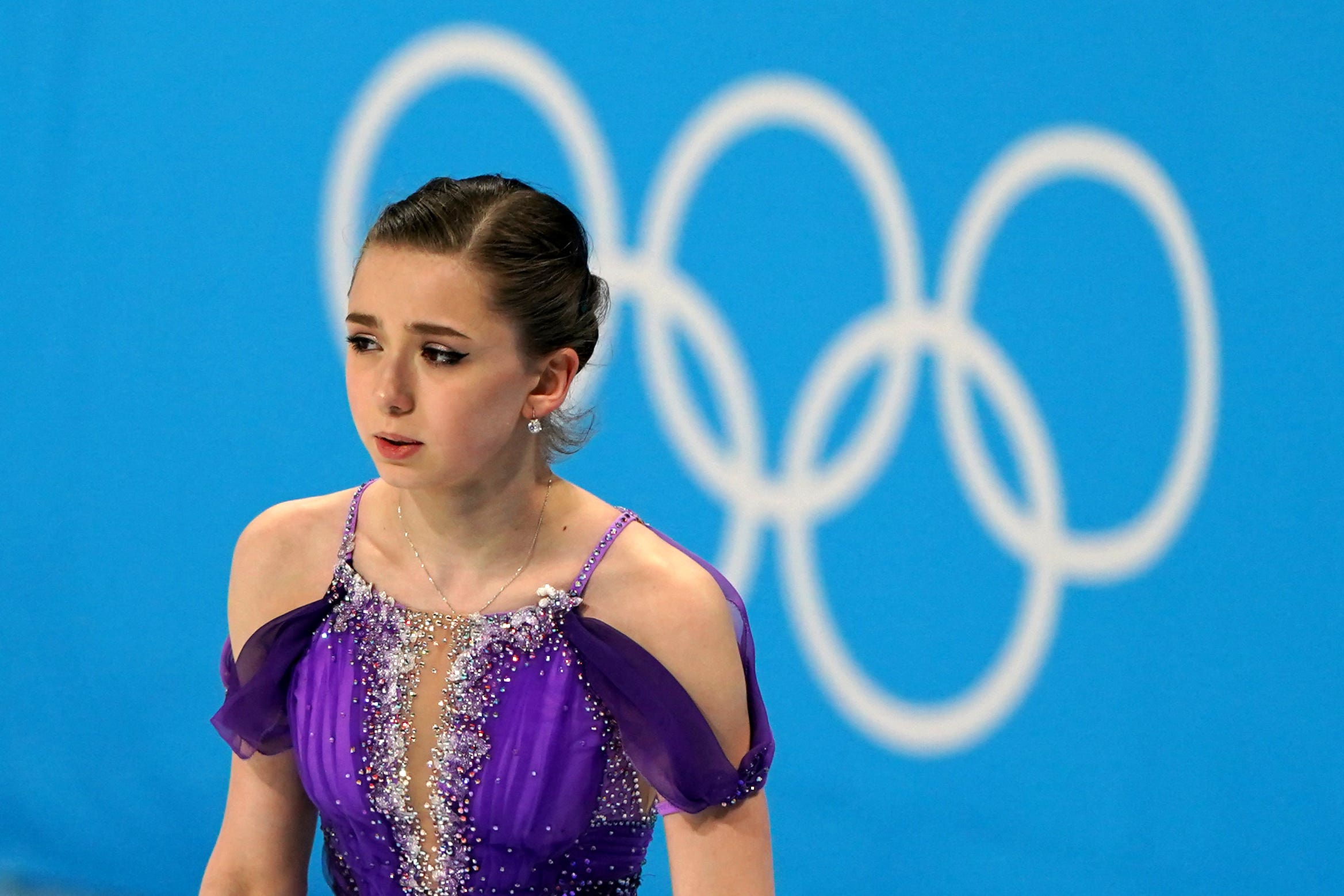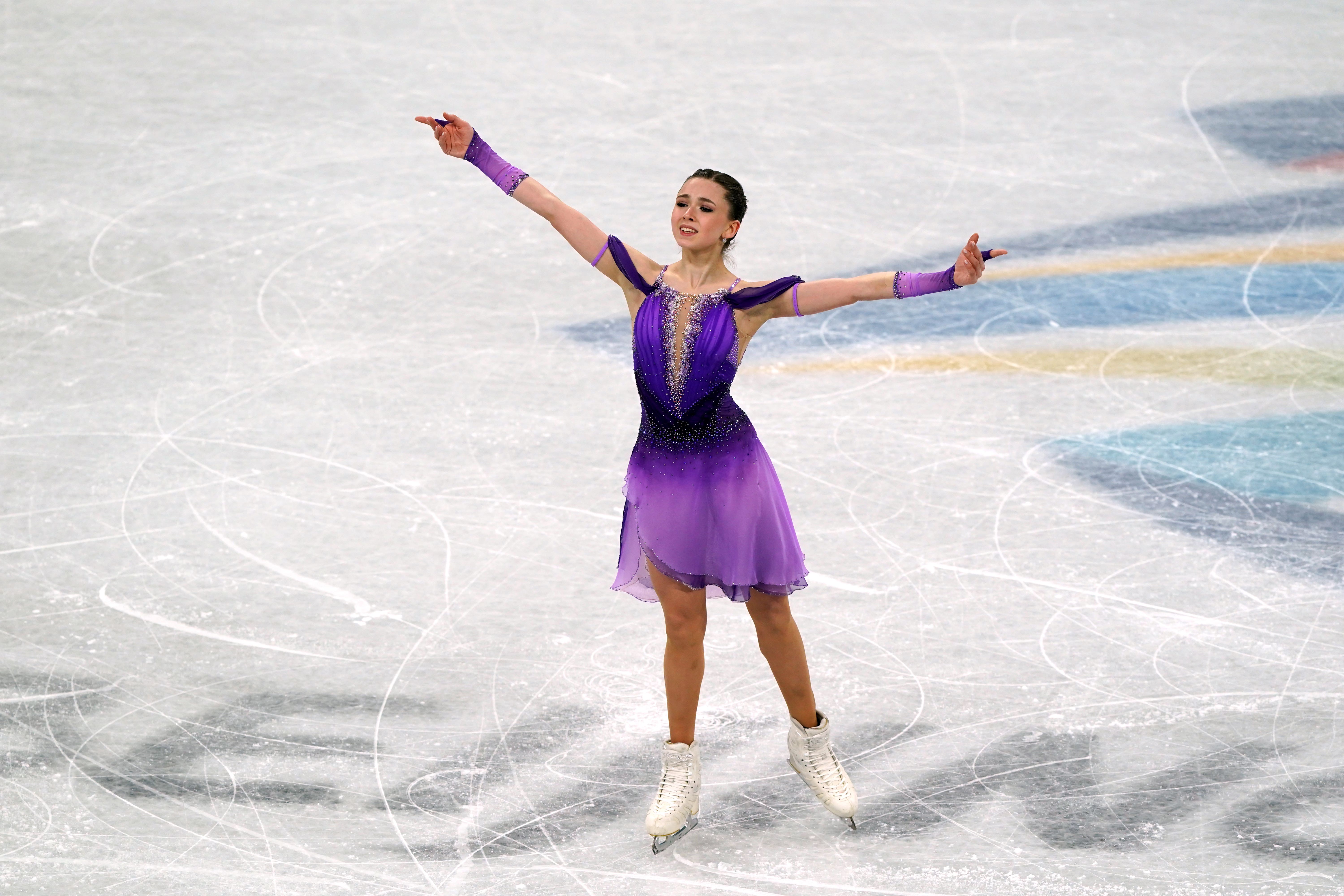Kremlin ‘doesn’t accept’ Kamila Valieva doping ban with Russia set to appeal Cas ruling
Valieva has been given a four-year ban after testing positive for a banned substance ahead of the 2022 Winter Olympics

The Kremlin on Tuesday condemned a doping ban on teenage figure skater Kamila Valieva and the stripping of an Olympic gold medal from her and her team mates, saying Russia would try to contest the decisions.
The Court of Arbitration for Sport (Cas) on Monday banned Valieva for four years for doping, a decision that also took away the Russian Olympic Committee’s gold medal in the team event at the 2022 Beijing Winter Games.
“We do not agree with these decisions - neither with the decision of the court, nor with the decision of the [ice skating] federation. We don’t accept them,” Kremlin spokesman Dmitry Peskov said.
“If there are any opportunities to challenge and continue to defend the rights of our athletes, they must be mobilised to the end.”
Valieva tested positive for the banned substance trimetazidine, which prevents angina, at the Russian national championships in December 2021. The result was made known only after she competed in the team event in Beijing.
Her team has said the positive test could have been due to a mix-up with her grandfather’s heart medication.
But the Cas panel determined there had been no scope for Valieva, who was 15 at the time of the offence, to be treated with more leniency than an adult found to have committed an anti-doping rule violation.
The doping charge against the young athlete stirred strong emotions in Russia at the time.

Russia, and before it the Soviet Union, have long regarded the Olympics as a chance to showcase the country as a winner on the global stage. But doping controversies in the past decade have soured Moscow’s relations with the International Olympic Committee and forced its athletes to compete at successive Games without their national flag or anthem.
“Upon our return from China from the Olympics, we honoured these athletes as Olympic champions,” Peskov said of Valieva and her team mates.
“We are convinced that for us they will always remain Olympic champions, no matter what decisions are made in this regard, even unfair ones.”
Reuters
Join our commenting forum
Join thought-provoking conversations, follow other Independent readers and see their replies
Comments
Bookmark popover
Removed from bookmarks